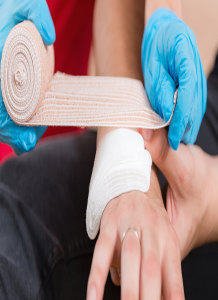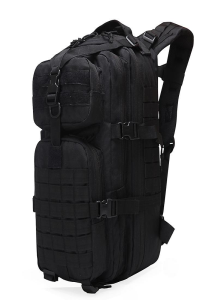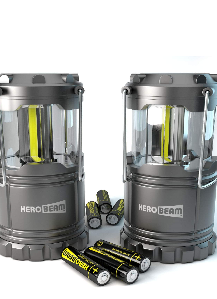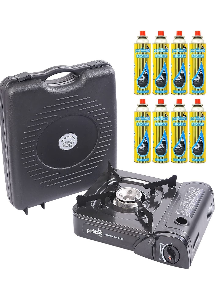Emergencies happen.
Emergencies can, and do happen. Being prepared, having a plan and equipment and having knowledge go a long way to help you cope and overcome many of them.

Enroll in a First Aid course
Do you know what to do if someone needs First Aid? Our NHS and Ambulance service is second to none but having the ability to give aid before the emergency services arrive can be a life saver. Every home and vehicle at your home should be equipped with a suitable FAK. (First Aid Kit). You should also carry a basic Individual First Aid Kit in your work/shopping/college bag so you are covered when you are away from home or your vehicle etc.

Fire
Your home should have suitable (and maintained) smoke alarms and Carbon Monoxide alarms fitted. You can also purchase individual smokehoods (to assist you evacuating a smoke filled property), escape ladders, fire blankets and fire extinguishers. These items are a small price to pay for your safety. Many Fire Services have a website that offer professional advice.
Assemble an Evac Pack in advance (see below).

Flooding
Check to see if your property is liable to flood at Check for flooding. Register for alerts for potential flooding at Register for alerts. Visit Know your flood risk. For useful information.
Assemble an Evac Pack in advance (see below).

Evac Pack
Also known as a grab bag. Essential items that you may need should you have to evacuate your property quickly. Ideally stored near your exit point so minimal time is wasted should you need to go.
- Copies of deeds, insurance documents, ID and a paper list of contacts.
- Spare keys (vehicle and home).
- Spare prescribed medication(s) and a copy of your prescription.
- Spare glasses.
- Spare cash (notes and coins).
- Torch, spare batteries (Lithium last better and are less affected by temp), charger for your mobile device, small pocket radio AM/FM.
- Multi-tool or Swiss Army Penknife (non locking blades and cutting edge less than 3 inches - Legal in a public place and no good reason required to carry it). Bladeless multi-tools are also available.
- First Aid Kit and pain relief tablets.
- Toiletries including sanitary products (as app). Roll of toilet paper, wet wipes and hand sanitiser. SheWee or Travel John.
- Note book and pen.
- 2 litres of bottled drinking water.
- Cereal bars and biscuits. (Non perishable food to tide you over).
- Foil blankets, emergency sleeping bag/bivvy bag and disposable poncho.
- Baby items and food.
- Comfort items for young children.
- Food and collapsible water bowl for pets. Consider including a spare lead as applicable.
This list is not definitive and should be adjusted for the number of people it is required to cover, and any individual needs as applicable. You may decide to include an additional bag that is kept with your Evac Pack that contains clothing and footwear as you may need to evacuate in the middle of the night, and in all seasons.
Only attempt to take your Evac Pack if it is safe to do so.

Power Cut
In the event of a power cut are you able to light the living areas of your home? LED technology has come a long way and camping type lanterns are relatively cheap and ideal for alternative lighting. Of course, these are battery operated and therefore it would be prudent to have a good supply of AA and AAA batteries.
Candles are another good source of lighting but not best suited if your home has children or active pets due to the fire risk.
Chemical glow sticks also have their place. They are non flammable, non toxic and require no power source. Just "snap" and "shake" and get 12 hours of light. Ideal for marking stairs and other potential trip hazards. A single yellow 6" glow stick emits ample light to illuminate a small toilet. Then of course there are LED torches and headlights.
Whilst our national grid system is pretty stable there is increased risk of power cuts due to rising fuel costs.

Cooking
If the electric or gas goes off, can you still cook a meal, make a hot drink? Small camping gas stoves (and a few gas canisters) take up little room and are an ideal back up should you lose mains services.
Just make sure you have adequate ventilation and that children and pets are kept out of the way. Make sure you keep a lighter or matches stored as a means to ignite your stove.
Do not under any circumstances use a BBQ indoors. The threat of carbon monoxide poisoning is very high as charcoal can emit large amounts of CO which in a confined area can be a killer!

Water
It's hard to believe that in the 21st Century, especially in the UK that one day water may not flow from your taps. However, a quick Google search will show that there have been (and will be), issues regarding our drinking water. Caused primarily by broken/frozen pipes and contamination. Contamination such as e.Coli and dangerous levels of Lead have both been found in UK drinking water. When this is found you're likely to be told not to drink it. Your options are to then buy bottled water. Which everyone else in the contaminated area will also be doing.
Therefore, it makes good sense to store either tap water in a container, or purchase 2 x 5l of own brand supermarket mineral water. Just remember that we should be drinking 2 litres of water everyday so depending on the size of your family (including pets), you may need to store extra.

Food
It's a sad fact that buying extra food now will save you more money (due to rising food costs), than placing the same amount in to a normal savings account where the interest paid is next to nothing.
Where possible, finances allowing, try to stock up and take advantage of any BOGOF deals that are available.
If you can afford to store food (that you actually eat), and build up your food cupboard then in the event of loss of income, perhaps due to redundancy or illness. You will have one less problem to contend with.